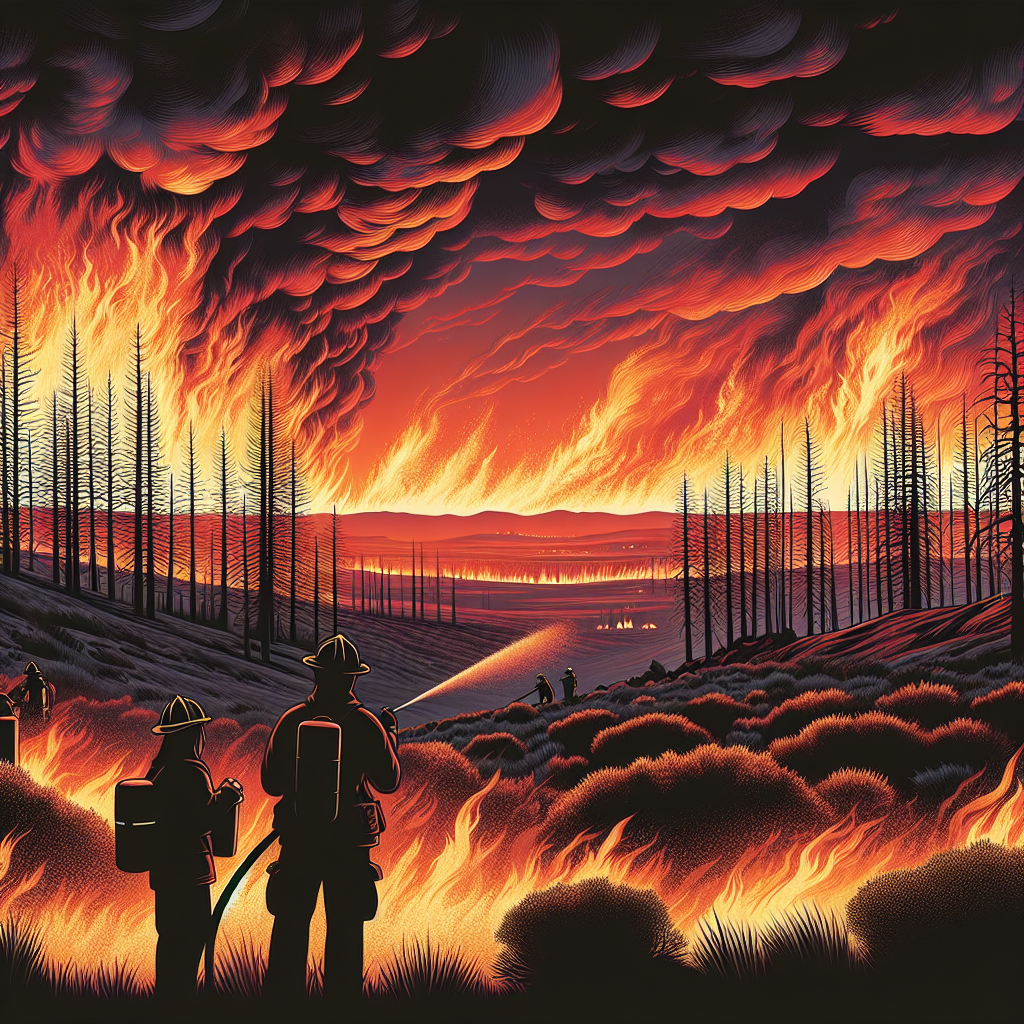Wildfires Threaten Canadian Oil Sands, Force Evacuations
Hundreds of wildfires across western Canada have prompted evacuations and raised concerns about their impact on Canadian crude production. British Columbia has experienced numerous lightning strikes, sparking new fires in drought-affected forests. Key oil sands facilities are monitoring the situation closely, with some curtailing operations temporarily.

Hundreds of uncontrolled wildfires burned across western Canada on Wednesday, putting more communities under evacuation alert and raising concerns about the blazes impacting Canadian crude production. There are 433 active wildfires in British Columbia and 176 active wildfires in Alberta, including more than a dozen in the Fort McMurray region, Canada's key oil sands hub.
This week British Columbia was hit by more than 58,000 lightning strikes, according to the provincial wildfire agency, sparking scores of new blazes in forests that are tinder-dry after a three-week heat wave. Around 25,000 people, including residents and visitors, were forced to evacuate the popular tourist town of Jasper, Alberta, and its surroundings early Tuesday as wildfires neared.
The Canadian government-owned Trans Mountain pipeline, which can carry 890,000 barrels per day (bpd) of oil from Edmonton to Vancouver and runs through Jasper National Park, said on Wednesday it was still operating safely and using sprinklers to protect its infrastructure. Flames are within 5 km of Jasper, Parks Canada officials said on Wednesday afternoon, and gusty winds are expected to fan the wildfires before rain arrives overnight.
'While rain will help reduce fire growth and allow crews to make progress, it will not control the wildfire,' Parks Canada said on social media. There have been no impacts to the town of Jasper so far although some structures have been lost to the south and east, officials added.
Alberta officials said 17,500 residents had been forced to leave their homes because of wildfires, while British Columbia has issued 19 evacuation orders and 29 evacuation alerts. Many communities in western Canada are blanketed by thick smoke, including Alberta's largest city Calgary where residents were advised to limit time outdoors.
OIL SANDS IMPACT Imperial Oil said it has reduced non-essential staff at its 275,000-bpd Kearl oil sands site, approximately 70 km north of Fort McMurray, in northern Alberta as a precaution.
Imperial said there was no direct impact on operations at the moment and it continues to monitor the situation closely. Earlier this month Suncor, Canada's second-largest oil company, temporarily curtailed some production and evacuated non-essential workers from its 215,000-bpd Firebag site because of a nearby fire.
About two-thirds of Canada's five million barrels per day of production comes from the oil sands region and the worsening wildfire situation is fuelling concerns among some analysts that production could be cut significantly. 'While wildfires have already forced some producers to curtail production, these fires still threaten a large amount of supply,' ING Group analysts said in a research note.
The small curtailments so far have been offset by a drop in demand after storms in Illinois forced Exxon Mobil's Joliet refinery, a major consumer of Canadian heavy crude, offline for a week, one Calgary-based trader said. The wildfire danger level is designated as 'extreme' across the Fort McMurray forest area and a fire ban is in effect for the entire area, the Alberta government said on Tuesday, adding that one major blaze is less than 7 km away from industrial facilities, but containment lines were mostly holding.
(With inputs from agencies.)










